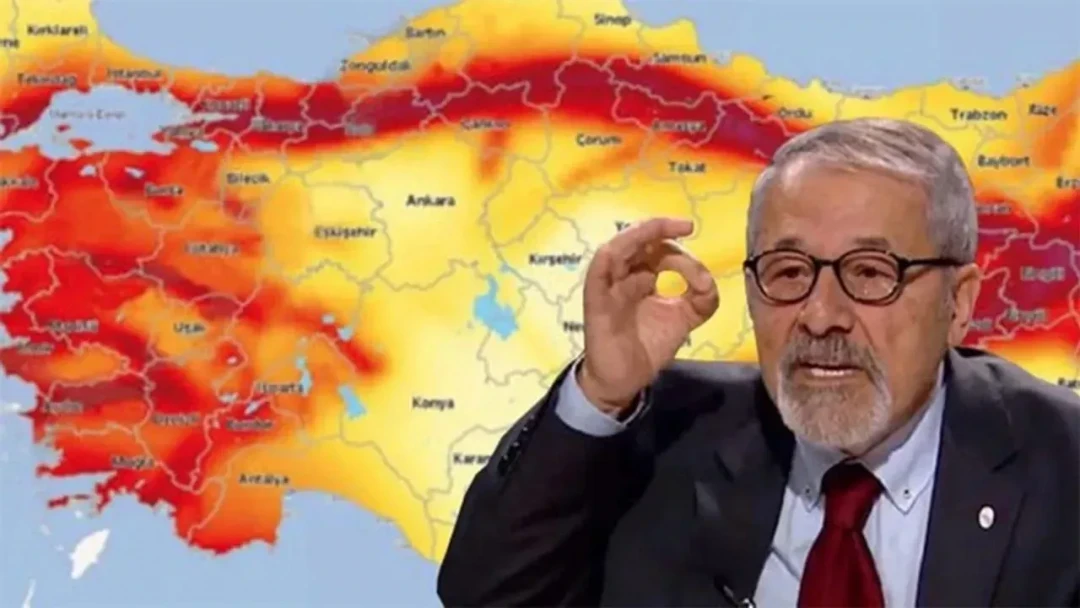"Alanya will turn to smoke" — Professor Naci Görür issued an earthquake warning for Alanya

All predictions about earthquakes by Professor Naci Görür have come true. In his statement to Yeni Alanya, he said, "In a possible earthquake, Alanya will turn to smoke."
Prof. Dr. Naci Görür, a geologist and faculty member at Istanbul Technical University, noted that there are four major fault lines in the region, each capable of generating earthquakes of magnitude 7 and above. He evaluated two recent earthquakes felt in Alanya and issued critical warnings.
In his statement, he said: "An earthquake of magnitude 5.0 occurred off the coast of Alanya in the Helen-Cyprus subduction zone. The world's largest earthquakes occur in such zones, like in Japan or Indonesia. A strange belief has developed in Alanya and Antalya: 'Earthquakes don't happen here.' This is completely wrong. The faults in this region indeed move slowly, but that doesn’t mean earthquakes won’t happen. If people were aware of this, they wouldn't think like that.
"EARTHQUAKES OVER MAGNITUDE 7 MAY OCCUR"
The earthquake cycle in subduction zones is slow, taking hundreds or even thousands of years. Very large earthquakes can occur in this region. For example, in the 1800s, earthquakes with magnitudes of 8 and above occurred. These fault zones can produce significant earthquakes over magnitude 7 because the African plate is slowly subducting beneath the Anatolian plate, creating tension.
"EXTREMELY WEAK SOIL"
When generations haven’t experienced earthquakes for a long time, they start to think, 'It doesn’t happen here.' Another misconception is the belief that 'our ground is solid.' Solid? In the mountainous regions, yes, the ground is stable, but in the Antalya Gulf region, both on land and at sea, the ground is extremely weak. Travertines are brittle rocks; they are not as durable as people think.
"THESE ZONES ARE 30–40 KM FROM ALANYA"
There are alluvial soils that are water-saturated and loose. Therefore, the belief that 'earthquakes won’t happen here' is a fallacy. No one knows the exact day an earthquake will occur, but when it does, it will cause significant damage to the Antalya region. In the eastern part of Antalya, in the mountainous region, there is the Akşehir Fault Zone, an active fault created by normal faults. To the west is the Fethiye-Burdur Fault Zone, which continues into the sea. To the north is the Eğridir Fault Zone, and to the south is the Helen-Cyprus subduction zone. Alanya and Antalya are completely surrounded by fault zones. When these faults produce earthquakes, they affect an area of at least 100 km. The fault zones I mentioned are located 30–40 km from Alanya.
"ALANYA WILL TURN TO SMOKE"
In a major earthquake, the Antalya region would suffer heavily, especially given the weak ground. People are building skyscrapers everywhere as if in a daze. The ground in eastern Antalya is much worse than in the west. Alanya needs to conduct micro-zoning studies and prepare for earthquakes by constructing low-rise buildings carefully. This doesn’t mean an earthquake will happen tomorrow, but even if it happens 500 years from now, it will still affect us.
"WE'RE BUILDING ABSURD STRUCTURES FOR PROFIT"
Sooner or later, this earthquake will happen. We want to ensure our people don’t die. We aim to create earthquake-resistant cities. Instead, we’re building absurd structures driven by profit. We need to use quality materials and hire skilled engineers. This needs to become a cultural norm."


